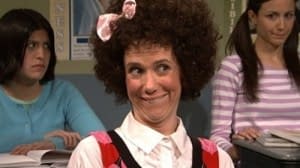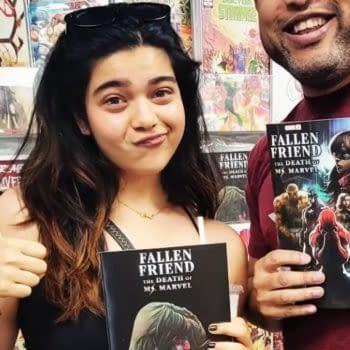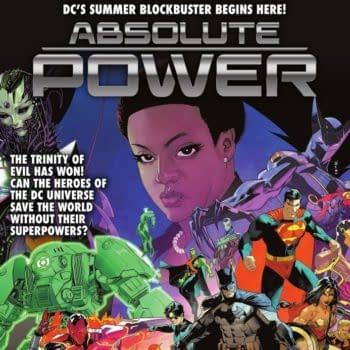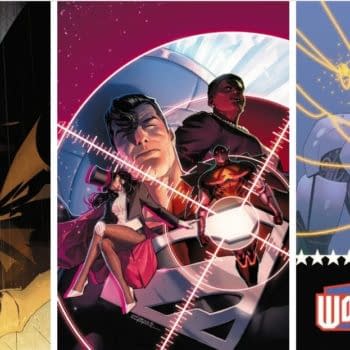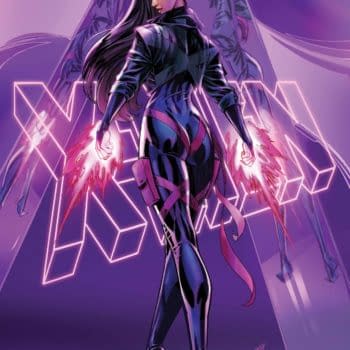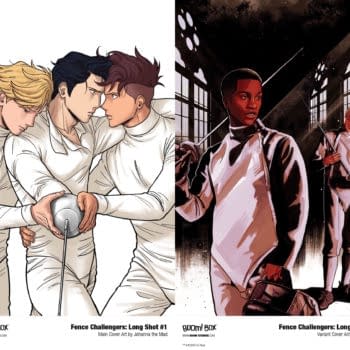Posted in: Look! It Moves! by Adi Tantimedh, Recent Updates | Tagged:
Look! It Moves! by Adi Tantimedh #33: When Live Is Dead On Arrival

However, for those of us from the UK who are used to the UK's traditions of humour and satire, I'm forced to conclude one thing:
SATURDAY NIGHT LIVE is not funny. At all. It is mind-numbingly, depressingly unfunny.
It hasn't been particularly funny for a long time.
When I saw the original 1970s version of SNL on DVDs that I rented, I thought it was both a commentary and expression of the Seventies "anything goes" ethos where the show was genuinely experimental and edgy. The writers and performers came out of the Harvard Lampoon, a group from Harvard University not unlike the Cambridge Footlights groups where fledgling comedy writers and performers met and collaborated before graduating to enter the media industry. There was a kind of wild abandon in the way they experimented with the form of live sketch comedy and fed off the chaotic and creative energy of being in New York at that time, when the city was both dangerous and had a thriving cultural scene before things evolved into the heavily corporatised, generic city it now is. The comedy on the show was unafraid of being intellectual and drawing on both high-brow and low culture, making fun of both the pop culture and European arthouse films without worrying that the audience couldn't get the references. The writers were fans of British comedy, especially Monty Python and drew on the dynamics rather than aping them directly, adapting them to a brash New York sensibility. Thus you got John Belushi playing the Samurai character Toshiro Mifuni played in Kurosawa's movies working various oddjobs in 70s New York with Buck Henry deadpanning away as his customer, whether making sandwiches in a deli or a cook. You get Peter Cook guest-hosting and starring in a sketch as an effect British theatre director staging the musical GIGI in a maximum security prison where the inmates auditioning for the lead are psychopaths and murderers who keep trying to rape his female assistant or him, while he unflappably takes notes and calls in the next guy. You got a satire on the whole Three-Mile Island nuclear plant disaster where a black cleaning woman is exposed to radiation and grows to fifty feet tall, to be joined by President Jimmy Carter and the two of them decide to marry and be the First Giant Naked Couple. You get a sketch about the Final Mission of the Starship Enterprise where the original crew meet an unstoppable nemesis that defeats them forever: the network executives who cancelled the show, dismantling the set around them and firing the distraught cast, including Spock, played by Chevy Chase, having a nervous breakdown when his Vulcan nerve pinch has no effect on the NBC exec, who proceeds to confiscate his ears because they're the property of the network. The sketch ends on a poignant note with Kirk/Shatner, as played by John Belushi, refusing to accept defeat and left sitting alone in his captain's chair on an empty soundstage vowing to fight on. Those old sketches from the 70s had real bite and weight. The Blues Brothers, as created and played by John Belushi and Dan Ackroyd, originally began on Saturday Night Live before launch albums and a movie. Whatever respect and credibility the show has now came from what it did in the 1970s, and the show is coasted on that ever since.
Jump forward to 2010, and I've had my telly tuned to it in the background on Saturday nights for a few weeks now, and I've barely cracked a smile each time I looked up from whatever I was doing to check it out. Maybe the show reflects the more gentrified, yuppified and dull city that New York has become. I've watched it with friends and they don't seem to find it funny either. The jokes fall flat, the premises are weak and the dynamic seems to involve the script hammering on the same weak premise over and over again in the hopes that someone would eventually find it funny, like an Englishman shouting louder and louder in English to a foreigner in the hopes that eventually the other chap would understand what they're saying. The attempts to satirise current events or celebrities fall flat and lack any real insight or real thought. Occasionally, the filmed digital shorts have a bit of punch, like the spoof music videos "J*zz*d in my Pants", about premature ejaculation, "Motherlover", about a pair of wannabe hipters whose Mother's Day presents were for each to have sex with the other's mum, and "McGruber" the McGuyver spoof has a bit of mileage, albeit a limited one, but good laughs are few and far in-between as opposed to frequent and regular. I find myself dreading what the next digital short or sketch instead of anticipating it. The show, for me, is mainly a bewildering and bemusing experience.
The show found some relevance taking the piss out of Sarah Palin in the run-up to the Presidential elections, but she was an easy target. Hell, she was practically a character who might have been created by the show's writers in the first place, so in this case, real life kind of did their jobs for them better than if they had tried it themselves. They only embellished it a little, and still managed to strenuously avoid going for the jugular. Maybe my perspective is a British one, where we're used to smart comedy with bite, we're used to the merciless venom of Charlie Brooker and Chris Morris, or Alexei Sayle, or The Comic Strip or even Fry & Laurie, where there was a sense of a mission or agenda behind the comedy, an awareness of the political and social dimensions of satire. With the current version of SATURDAY NIGHT LIVE, there's a sense of timidity, of a fear of offending. Where British comedy stuck the knife into celebrities, SATURDAY NIGHT LIVE kowtows to it. In the 1970s shows, the celebrity guest hosts often colluded with the show to send up their own images with some knowing bite, like Burt Reynolds lampooning his image as a bit of a boor. Now the show bends over backwards to flatter the guests, at the expense of any laughs. Granted, the show still has several talented performers, but they're often hamstrung by mediocre or lumpen scripts. Kristen Whig is a brilliant actress and comedienne often given the most soul-crushingly unfunny material I've ever seen. I suddenly had a flash that she might be the American counterpart of Catherine Tate.
At this point, SNL is more of a successful business franchise than a funny sketch show. Every Saturday night, I find there are more fun things to do than watching it, like sex, drinking, drugs or sleep. I'm completely mystified that people want to watch it at all other than out of habit the same way people back in Blighty watch the Queen's Speech every Christmas, except this is every week, and on a night when you would expect anyone young or hip to be out dating or partying. Does anyone actually find it funny? Or is it that by the time they come inside to watch it, they're so drunk, drugged up or knackered that they might laugh at anything?
LIVE FROM NEW YORK, the oral history of the show, is an essential read about the changing face of the show through the decades. There's some talk of the drug-taking amongst the staff in the heady days of the Seventies that might have spurred their creativity. I don't know if the current writing staff is on drugs, but if they are, they're either not taking the right drugs or not enough.
Not laughing at lookitmoves@gmail.com
© Adisakdi Tantimedh


